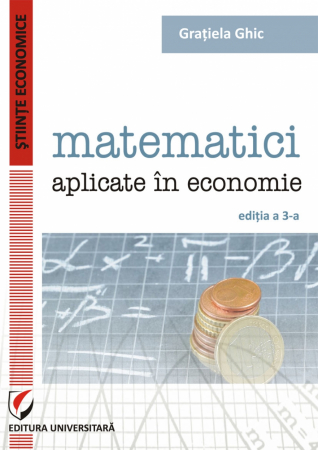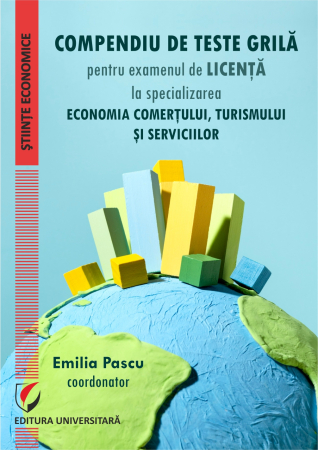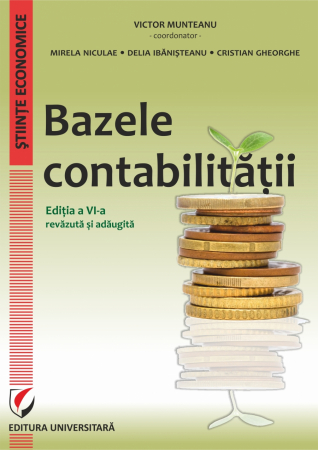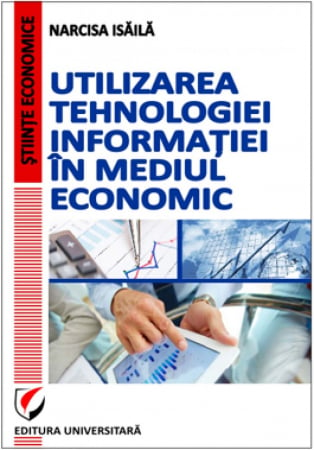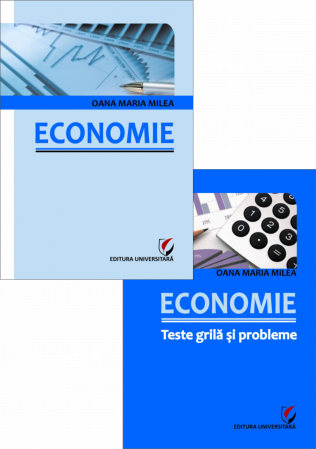ISBN: 978-606-591-174-1
Publisher year: 2011
Edition: I
Pages:
Publisher: Editura Universitară
Author: Iuliu Marin Ivanescu
- Description
- Download (1)
- Authors
- Reviews (0)
Problems of economic growth is, especially in the postwar period a major concern of economic theory and practice worldwide. Deepening economic and social complexity, increasing interdependencies between internal and external factors as the need to integrate new principles into development strategies are factors of great importance and timeliness, determinants of economic development in the contemporary world.
Radical transformations occurring in the global economy in recent decades have generated extensive comments, worn especially on the explosive growth of unemployment, uncontrolled inflation rates, interest suffocating, debt crisis, contradictory evolution of the process of economic integration, international trade trends, budget deficits , increased competition, environmental degradation, etc.., all in one place, making a massive package problems whose solutions were not always considered satisfactory. Economists, and others, have tried various solutions to answer. Unfortunately, to date, a blanket solution for all these problems was identified. Gradually, economic theory has felt the need to use new concepts, able to explain with greater accuracy, enormous changes have occurred recently in the global economy. One of these concepts, which has contributed to understanding the nature and consequences of all these changes was the economic globalization.
In this context of interdependence, addressing economic growth is crucial means of developing economic growth as inevitably support cultural and qualitative changes that must occur across economic and social life, the human individual and social welfare.
Crisis phenomena in postwar decades that reflects much of the system have profound implications, but edged and hiding different groups of countries and even the national economy.
For developed countries for example, this means reducing economic growth, increasing proportions of unemployment, increased social tensions and a slowdown in labor productivity increase and environmental degradation of the environment. At the same time, there is a strong pressure on health and social protection, increased living standards and the proliferation of anti-social phenomena: corruption, organized crime, etc.. On the other hand, there is a counter from these countries to maintain the benefits available through integration policies, benefits from international division of labor in international economic relations based on the theory of comparative costs, capture of science and technical progress and global finance.
For underdeveloped countries or developing countries this means the pressure of demographic trends, reduced rate or even negative economic growth, environmental degradation, ecological, increased latent unemployment, more expensive energy costs, escalating prices of manufactured products they import, increase military spending, deepening debt and narrowing external markets for products manufactured by them. Consequently, this leads to increased poverty and disparities in rates of unrestrained and demands on their use of renewable natural resources.
For many former socialist countries, globalization has meant an economic downturn, economic structures and social degradation, rising inflation and unemployment, worsening living conditions, loss of supply and sales markets, external debt, the growth of anti-social phenomena, lack of vision and transformation their sheltered slogan "market economy", in an annex of Western European countries.
Indeed, most times, even understanding this is a difficult goal to achieve. When the researcher is placed in a position to draw some trends for the near future, the task is complicated in proportion to the time he wants to put it out. This is especially evident with the changes occurring in the economy but are faster and involve little resemblance to what it was before. Occur, then the differences of perception. Different researchers use different terms and concepts to explain the same phenomenon or process. On this basis, there are conditions of strong controversy about the nature and character of the changes in planetary scale, almost impossible to follow, if we consider the huge number of works with direct or indirect reference to the problems analyzed.
This book combines both wanted to analyze the components of the subject of theoretical and analytical knowledge to the specific dynamics of the postwar economy.
Economic thinking of the nineteenth century was dominated by the interests of most economists to the problems of economic development especially through economic activity. The twentieth century saw an increase constant preoccupation of economists to characterize and explain the functioning of the economy nationally and more, not only short term but also medium and long term.
Preference of most contemporary economists term growth can be explained primarily by the steadily increasing trend in the modern economy and, secondly, due to changing center of gravity of the economic analysis of the view that a mix of quantitative elements perspective that emphasizes the relations generated by quantitative and qualitative changes.
The literature uses a variety of terms aimed at rendering the idea that national wealth and its dynamic component, national income, increase over time, resulting in not only quantitative but also qualitative changes in the economy.
The concept of growth was usually used in two ways: firstly describes the increasing social product, national income and wealth and second means increasing the national income per capita.
Thus it was the concept of economic development. Hence the debate on the requirement to overcome the quantitative aspects of economic development by joining the quality.
Analysis of growth factors include positive or negative contribution of international trade and international capital market as a vector of the contemporary economy. Effects of transition from growth to economic development through structural changes of technical, organizational and institutional are examined by human development index, in terms of complexity measurement tool development company.
The twentieth century accounted for the world economy, as well as for all humanity, a century of speed. Last hundred years have meant not only a period of unprecedented technological development and that of World War II history who have been detained due to the impact on human society, not only during the war years especially as their subsequent .
Until the nineteenth and especially twentieth economy was organized according to the growth but for survival. Needs associated with a relatively stagnant stagnant population. No doubt that some changes but they were produced mainly by economic and cultural than if they all had an influence limited, slow and long term. In recent decades, and now, modern economies are organized according to the growth and development.
Since the 50s the world economy was divided into two diametrically opposed systems: on the one hand called the market economy, ideology, capitalist system and the other socialist system. Cold War, in fact World War III if we can call it, to mobilize resources and capabilities that have marked the structure and pace of economic development.
On the other hand, constantly redefining the balance of forces in the economic and commercial complex issues on the agenda of international negotiations, the emergence and maturation phenomena of regional economic integration, diversification and increasing the effectiveness of different policies promoted including group level phenomena complex international implications, including the institutionalization of relations between countries, globalization of production systems and capital flows, redefining the role of transnational companies, are factors that have influenced in a more or less significant than the global economy in the last 60 years.
During this period, the socio-political influence proportions sometimes significant economic change. Beyond the political restructuring, occurred and changes of mental and moral type of exacerbations of nationalism, of religious fanaticism and what is more tragic, international terrorism, reasoned arguments and wishes very different and more difficult analyzed and solved.
The last three decades of the century marked the turning point for the development and global economic trends. First, came the oil crisis whose consequences we see today in terms of high and volatile oil prices and extremely consistent income of Petroleum Exporting Countries obtained from this business.
The economic crisis started in 2007 and completed global horizon yet unknown, is a matter of concern for economists and others. It is probably the worst crisis in 80 years. It is also an opportunity for economists to give books and to rally opened with one of two main doctrinal camps contemporary mainstream Keynesian current, which is in favor of increased state role in economy, that group of believers in system virtues of unfettered free market economy.
We have an official explanation of the crisis, provided by public institutions, that the problem stems from improper behavior of economic agents and market unable to function smoothly, ensuring appropriate allocation of resources.
On the other hand, there are arguments that claim that government intervention just planted seeds of financial turmoil that we are going through now. According to those who support them, the recipe prescribed by the authorities to alleviate the economic difficulties can lead but on the contrary, to their aggravation.
In this uncertain economic and social context, is obviously difficult to predict future economic developments both nationally and especially regionally and globally
-
Dinamica economică în perioada postbelică. Evoluţii în planul comerţului internaţional
Download

6359.png)
![Economic dynamics in the postwar period. Developments on international trade [1] Economic dynamics in the postwar period. Developments on international trade [1]](https://gomagcdn.ro/domains/editurauniversitara.ro/files/product/large/dinamica-economic-n-perioada-postbelic-evoluii-n-planul-comerului-internaional-2036-877483.jpg)


